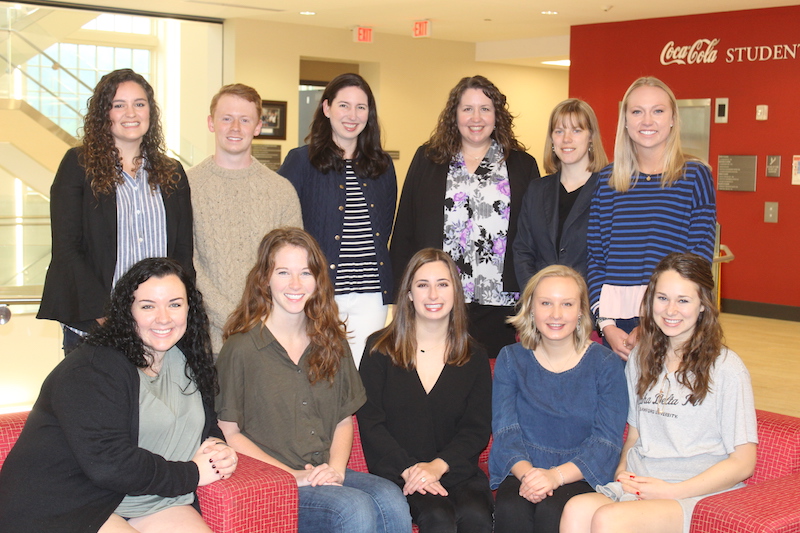
When women studying finance and economics look for career possibilities and mentors outside the university, they find the fields are surprisingly short on female role models. To address this issue, several Samford female students have set out to promote opportunities for women in the heavily male-dominated disciplines. They initiated the first undergraduate student organization in the country for connecting women interested in these fields.
They call it F.E.W. (Finance and Economics Women).
The goal of F.E.W. is to encourage women in the finance and economics professions by providing them with access to mentors already working in those fields.
Additionally, F.E.W. aims to show undergraduate women that a career in finance and economics is a fantastic choice and support those who have already declared either one as their major.
“We thought an organization like this would provide a space for discussion as well as learning about opportunities within these fields,” said senior Rachel Johnson, one the group’s founding members. “With there being no similar organization at the undergraduate level, we decided to create one ourselves.”
Sara McCarty, associate professor of economics and the group’s faculty adviser, stated, “Over the years, I noticed that despite the more balanced 200-level courses I taught, upper level economics courses had few female students. The same is true in finance. Economic and other disciplines’ research talk about the importance of role models to whom students can relate. While we have three female faculty in economics and finance, many students do not plan to enter academia.
The idea really came to fruition after several professors in Samford’s Brock School of Business, including McCarty, took a group of female finance and economics students to the Women in Economics Symposium at the St. Louis Federal Reserve in February 2018.
“The conference focused on the fact that there are very few women in the fields of finance and economics. We discussed why that is and how we can encourage more women to pursue degrees in these fields,” said senior Shelby Collins. “It was actually in the airport on the way home from the conference that F.E.W. was created.”
“We have been so lucky to have so much support in starting this organization,” Johnson added. “I cannot even say how many people have reached out wanting to play a part in the formation of F.E.W. – not only our wonderful faculty and other students, but women in the Birmingham community have wanted to help in any way they can.”
McCarty added, “There is tremendous support for F.E.W. in Birmingham’s business community. Samford alumni and other area businesswomen are eager to mentor and connect to our female finance and economics majors.”
So far, the group has organized several lunches with successful women in Birmingham. The events are conversational and provide a great medium to learn about careers, as well as hear about challenges that women may face in these fields. They have also held panels where women in finance or economics roles have shared their experiences and career advice. The group even attended the “Women, Money, and Power” event in Birmingham with keynote speaker and best-selling business author Sallie Krawcheck earlier this month.
As the group grows, they hope to explore even more avenues for helping young women succeed including events such as sexual harassment seminars, a panel on raising a family while being in high-powered positions, and other topics that are very real for a female professional.
“We are so excited to be a pioneer with F.E.W. and hope to spread the organization throughout the country. There are professional women organizations, but none at the undergraduate level, and we believe there is a lot of room for growth because of the current lack of organizations like this,” said senior Moriah Stice.
Recently, a university in California created a chapter of F.E.W. after consulting with the ladies who started the Samford chapter. The group notes that other Birmingham college students have also reached out to learn more about how they can start their own F.E.W. organization.
“We have so much interest we have trouble following up on all offers,” McCarty said. “What this tells me is that just as our students are enthusiastic for opportunities to learn about life and the workplace from women already working in finance and economics, those already working are eager to help the next generation. This is the heart of why we exist. There are questions and concerns that are particular to women’s decisions in the labor market, and F.E.W. provides a space to consider and discuss these challenges, as well as hear from others who already navigated them. This is valuable.”
“We would love for college women everywhere to have these same opportunities and hope to serve as a model for future chapters,” Johnson closed.
All students interested in supporting this mission are invited to join F.E.W. To learn more about F.E.W. or to get involved, contact Rachel Johnson by emailing rjohns13@samford.edu.
